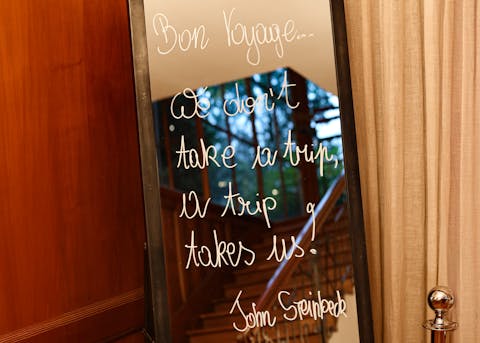Claudio Melis: From Instinct to Discipline, the Journey of a Chef from Barbagia into the World | Olianas
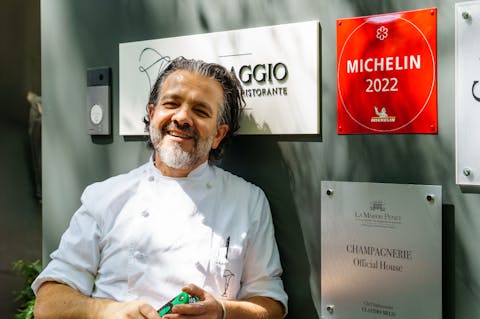
People
Claudio Melis: From Instinct to Discipline, the Journey of a Chef from Barbagia into the World
by Jessica Cani
The story of Claudio Melis, a Michelin-starred chef from Gadoni, might seem like the work of fate. In reality, it is the result of dedication and perseverance. In the 1980s, Melis wavered in deciding which professional path to take, feeling little enthusiasm for any of the schools near his hometown. “In middle school I was already bored; I wasn’t really interested in any of those paths. I was looking for something different,” he recalls.
The turning point came by chance: a notice to the town’s parish priest mentioned the search for new students for the hospitality school in Sassari. Claudio picked up the phone, called, and requested a spot. “They told me I could choose between cooking, dining-room service, or reception. I almost chose at random and said cooking, without really knowing what I was getting into.”
At first, there was no precise plan, just a growing curiosity with each season and every experience. “Gadoni felt too small for me; I felt that the world was elsewhere, that I needed to move, to see what was happening outside.”
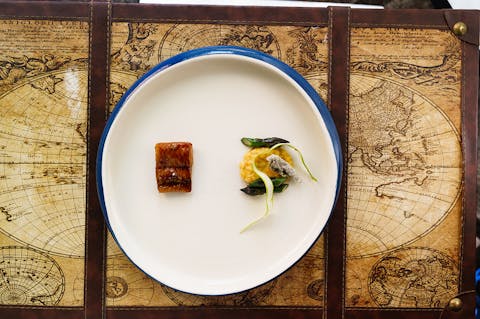
The first seasons are spent between Porto Rotondo and Porto Cervo, working alongside the teachers from the Sassari school. These were formative years of apprenticeship. Working during the summer months in Sardinia in the ’80s and ’90s meant being at the heart of a gastronomic laboratory with a European outlook: international clients, structured kitchens, and an unrelenting pace.
The turning point came in the early ’90s, when he met a French pastry chef who had worked with Gualtiero Marchesi in Milan. “One night, after service, he took me to try Marchesi’s cuisine. I still remember that tasting: we left at one in the morning, and I was running with excitement. I told myself: if I’m going to continue in this work, I want to do it this way.”
That encounter sparked a new awareness: cooking was no longer just a job, but a discipline requiring study, dedication, and sacrifice. Melis set off for France, driven by the desire to learn from those who were already shaping that path. It was his first real leap forward, the start of an international journey that would see him work with great masters and engage with inspiring kitchens capable of looking far ahead.
The ’90s unfolded through experiences in Italy and abroad: San Marino, Parma, Germany, Spain. At just 24, he joined a Michelin-starred kitchen in Parma, a challenging and formative test. Then came the mountains, the Dolomites, where he had done a season as a young apprentice and returned with a different perspective, falling in love with landscapes that would become part of his life. “When I arrived in Madonna di Campiglio, I realized I could stay there. I fell in love with the mountains, their rhythm, their toughness.”
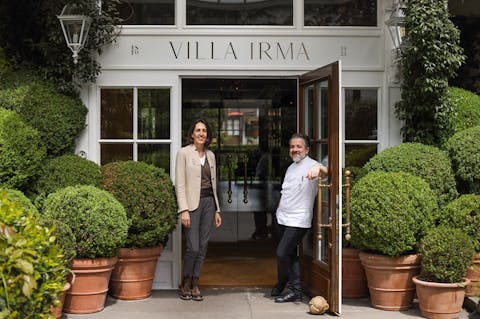
But the journey does not stop. In 2010, he set off abroad: Saudi Arabia, Antigua, Dubai. Intense years, where cuisine intertwined with management and a broader vision of the restaurant world. “Abroad, I learned to become not just a chef, but also a manager. To run complex operations, to see hospitality as a system made of people, organization, and vision. It was a very tough school, but fundamental.”
Yet behind every new experience remained the same drive that had pushed him to leave Gadoni: the desire to discover, grow, and never stop. Each stage became a piece of a mosaic that, over time, took an increasingly clear shape.
Today that mosaic lives in Merano, where Melis decided to settle with his wife, bringing two complementary realities into Hotel Irma: “In Viaggio”, the Michelin-starred restaurant representing his most radical and personal idea, and Tree Brasserie, more everyday but equally curated.
Looking back, the trajectory seems to have an inevitable logic. But Melis repeats it many times: it was a sum of encounters, intuitions, and instinctive choices. “My whole path has been based on meetings. Without them, I probably wouldn’t be here.”
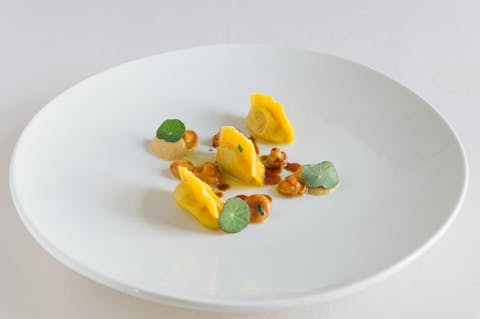
Behind Claudio Melis’ long journey lies a single thread that ties everything together: taste. It is his obsession and guiding principle. “For me, good is not enough. It must be excellent, it must go deeper.”
This pursuit always begins with the ingredient—not an abstract idea or concept, but the raw material, selected with almost obsessive care. “The ingredient must be of the highest quality. It doesn’t mean it has to be noble or rare; it means it must be the best possible.” Once found, the ingredient is treated with minimal manipulation, resulting in dishes that are clear, readable, and immediate.
Melis does not believe in cerebral cuisine designed to astonish at any cost. “If the guest has to strain to understand what’s in front of them, then I’ve failed completely. Cooking is a universal language: it must be clear, direct, understandable. It shouldn’t be banal, but it must be accessible. And accessible doesn’t mean cheap—it means everyone should be able to grasp the message.”
With this approach, he built In Viaggio, his Michelin-starred restaurant in Merano. Here, everything is conceived as a journey: the name is no coincidence, every dish represents a stage, a suggestion, a fragment of experience. “I wanted to create a restaurant where the journey is both real and metaphorical. There are no fixed dishes; each season becomes a different path. It’s like an itinerary: every course is a station, every detail tells a story.”
Working exclusively with regional ingredients is integral to this philosophy. In Viaggio is a laboratory combining rigor and identity. “You won’t find exotic ingredients in my dishes. Only regional products, mostly from Triveneto, and in any case, Italian. The challenge is to show that you don’t need to go far to create depth and complexity of taste. You just need to look close to home.”
Then there is Tree Brasserie, a complementary project that aligns with the chef’s vision. Here the tone is lighter, everyday, and pop, as he defines it. “Tree Brasserie is a place you can come to every day, where the cuisine is fresh, dynamic, and accessible. It’s not inferior cooking—it’s different.”
Two souls that complement each other, built with the same care, because for Melis there are no hierarchies in quality: there is only the honesty of the dish and its coherence with its purpose.
Behind this apparent simplicity lies constant, obsessive work. Melis states without hesitation: “Cooking has never been just a job for me. It has become a way of life. Rigor, discipline, continuous research: you can’t flip a switch when you leave the kitchen. It’s a mindset that always accompanies you.”
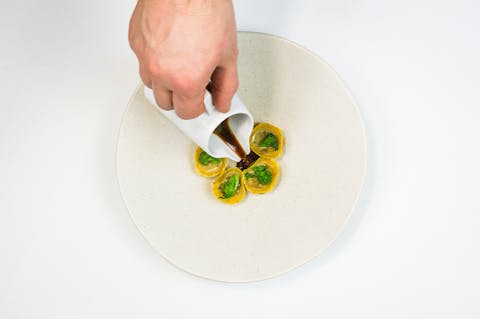
Claudio Melis has always felt a strong connection to Sardinia, even during periods when the island seemed distant, almost irrelevant to his professional choices. It is a bond shaped by character, flavors, and an attitude that the chef recognizes as part of himself.
Yet, as deeply rooted as it is, this connection has never translated into a stable professional return. After his first seasons in Costa Smeralda, his career took international directions, and Sardinia remained a familiar backdrop rather than the center stage. “Our land has always stayed in my heart, but for years I saw it as a challenging context for building a solid career. I have always thought long-term, and the island seemed limited to me, with a season that lasts only a few months and too many difficulties to work consistently.”
Melis’ judgment is not dismissive but stems from a clear and reflective awareness. “There is still a lack of entrepreneurial mentality. We Sardinians are often more ready to help outsiders than our fellow locals. It’s an attitude that penalizes us and prevents us from truly growing together.”
In his words, another side of the island also emerges: Sardinia as a land of immense possibilities, still largely untapped. “We have extraordinary raw materials, landscapes without equal, a very strong identity. The challenge is to learn to support each other more, to build projects that don’t stop after one summer but endure over time.”
His perspective becomes sharper when he talks about the differences across the island: Cagliari as a dynamic city with a growing gastronomic scene; Sassari slower and more closed; Costa Smeralda as an international showcase, where the main players are often large foreign groups. “In Sardinia, you see the most prestigious global brands open restaurants and hotels, but then you ask yourself: what remains for Sardinians? What’s the benefit for us, beyond lending our landscape?”
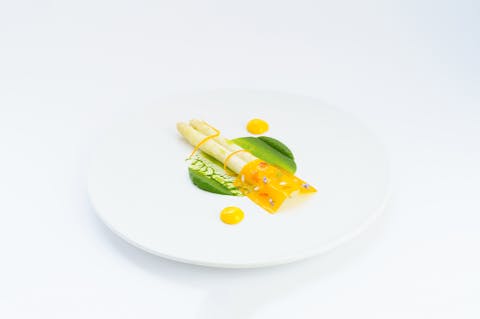
Melis does not hide a certain bitterness: “In the Aga Khan project, that probably wasn’t even the original vision. Porto Cervo, for example, had been conceived in a way much more integrated with the territory, with respectful architecture, houses embedded in the rocks, almost invisible from above. It was a visionary project for those years. Over time, however, business logic took over, and we ended up selling off part of that heritage.”
There are, however, virtuous examples: restaurants that endure, establishments that have built a strong and lasting identity. But for Melis, the challenge remains open. “We need to believe in it more, to support each other. External capital is important, of course, but without a local fabric holding it together, what really remains for us?”
In this reflection lies the complex relationship between the chef and his land. A relationship that does not translate into constant physical presence, but resurfaces in the dishes, in the rigor, in the idea that “good is never enough.” “Sardinia is my home. Even when I don’t live there, it remains inside me. The character that shaped me is that: stubborn, rigorous, capable of going deep. That is what allowed me to become who I am.”
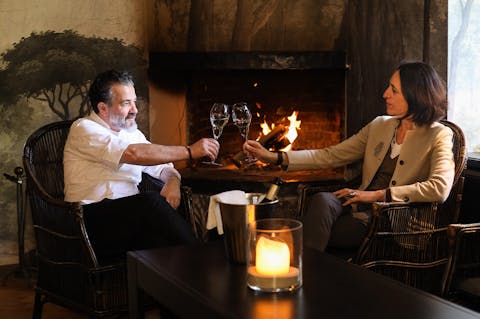
When I ask him which places he loves to visit most in Sardinia, Claudio Melis does not hesitate. His gaze remains that of a professional used to evaluating value and vision, and his references inevitably become travel advice.
“Luigi Pomata, for me, remains a major point of reference in Cagliari,” he says without hesitation. Not just for the cuisine, but also for the broader idea of hospitality. “He was a pioneer. He brought an international perspective when few others had it and knew how to present Cagliari as a gastronomic destination. He didn’t just focus on the port and cruise ships; he built a wider vision.”
Alongside names, there are places. Melis invites us to look beyond the coast, towards the interior. “Towns like Gadoni, mine, or many others inland, have incredible potential. Unique landscapes, silence, authenticity: these are treasures still underappreciated. They are not enough on their own, of course, but they can become part of an offering that lasts all year.”
Claudio Melis’ story shows that rigor is the true compass for a lasting path. There are no shortcuts: cuisine, like any profession that aims to leave a mark, requires constant dedication and discipline. A bond with the land, as in the case of Sardinia, is a responsibility: recognizing its potential and fragility, and learning to support it with vision. On this, Melis is clear: quality is never a compromise, and growth cannot exist without a community that believes in itself.
